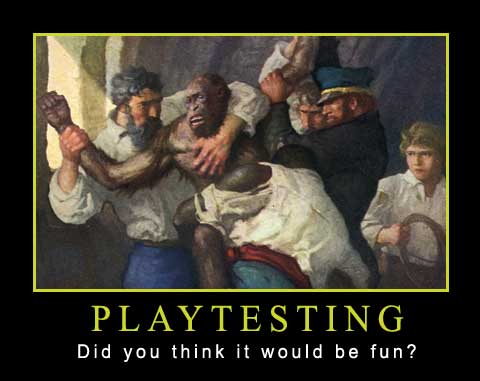In the GameTek segment on a recent Dice Tower podcast episode, Geoff Engelstein was talking about the development of AI programs able to play a game hundreds of thousands of times, which could be used to check that a game is properly balanced. But is game balance something that needs to be developed to that kind of level? Geoff pointed out that players will often, in their first few games, notice game imbalances (perceived or otherwise) that wouldn’t be an issue with seasoned players of the games, but can be an issue for people who have played the game a handful of times.
With the ‘cult of the new’ being a big thing in the hobby these days, how many boardgames get played sufficient times to gain the depth of experience necessary to see the true game-balance? A game played only 5 times, say, may actually be unbalanced at that low play count, simply because players cannot become good enough at the game to learn how to “play out” the imbalance.
How can designers work around this? We are always told, “playtest, playest, playtest”. But if too much experience in playtesting your own game can adversely affect your view of whether the game is balanced, is there a way to check if a game is still balanced for a player who has only played the game a few times? Is blind group playtesting the only way to check this? Finding sufficient playtesters is often a challenge in and of itself, so finding sufficient playtesters to only play the game a few times and comment on balance at that stage must be even more difficult.
I would love to hear any thoughts anyone has on this!
